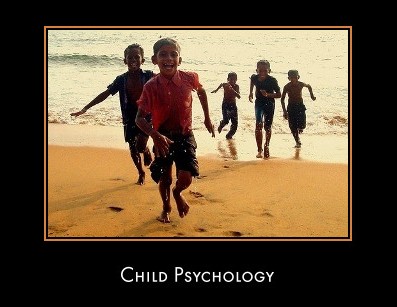Psychology Classics On Amazon

Child and Cultural Psychology
by Geneva
(Canada)
My daughter is nine years and attends a school that is multi-cultural. I have always taught her not to distinguish by the color of ones skin color, to be open to other cultures and to embrace every ones differences. I have always been open minded and would not consider myself racist or prejudiced, especially residing in a region of Canada where we are surrounded and enriched by so many different cultures.
With that said, my daughter has recently shared her desire to be east Indian. Provided that my daughter is one of the only Caucasians in her class and is considered the minority in the school, as a whole - where the customs/traditions and varying cultural celebrations are taught and celebrated as the primary, which is outside of our own...I am concerned.
I am not sure if because she is different than everyone else, her desire to be like her classmates is an attempt to fit in, or in a nine year old's mind creating similarities to her friends for commonality for acceptance or if I am dealing with an identity crisis where she wants to be like everyone else instead of embracing herself (which is a dynamic most children deal with any school, regardless of the "cultures" present, however this is an underlining is much different than "who's got the nice clothes" or the most popular, or regular 'peer' issues etc etc).
Being someone whom embraces others and has taught my daughter to do so as well, I am not sure if I have created "this" however I feel as though there's a reversed prejudice or pressure that perhaps she must be "Indian" to be okay or accepted by others. My fear is she is being treated differently or given the impression her peers are not as open to our obvious differences as we are to theirs.
I have supported her desire and excitement in learning how to print words in Hindi, including her name, greetings etc, the differences within the culture (Hindi Punjabi etc), her wanting to look up information and also borrowing the new "Bollywood" movie from her friends, which in other places would be compared to the new "Disney" movie being the cool "it" show the kids talk about.
I have positively reinforced that wanting to learn and share the understanding of others including their cultural, language, customs, beliefs and religions is spectacular however she does not need to be like everyone else to be "okay" and she doesn't need to change in order to enrich herself in the journey of learning and sharing a desire to understand her friends morals and values, their culture and beliefs, which does not need to be limited to the Indian culture, or our own for that matter.
Given the circumstances, would you consider her behavior normal? Do you think there are underlining issues that are coming to light or do you think this is natural considering her daily experiences and activities bring to light she is different than her peers on many levels, not limited to the color of her skin, she cultural difference, religion, celebrations and clothing.
I have thought of this on many different levels, including if this was an issue of fitting in outside of the cultural difference, that any child deals with in school or as an adult, we deal with day to day. To which we compare, want to fit in, and share camaraderie however all have our own identities and individual characteristics that make us unique.
I want to teach my daughter to embrace herself and others, having confidence in herself however not feel a need to "be" like everyone else in order to be accepted, whether it be clothes, choices, character trails, religion, cultural etc etc.
How should I give the right message to my daughter without alienating anyone in the process?
Related Information on The All About Psychology Website
Child Psychology

